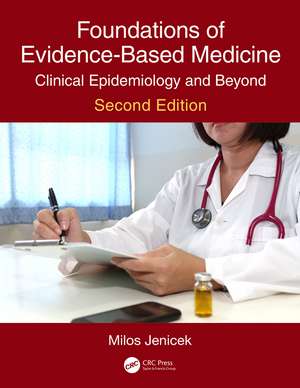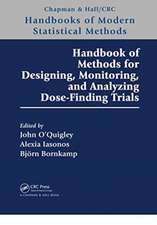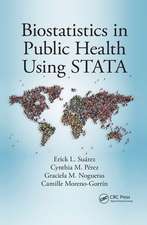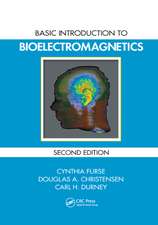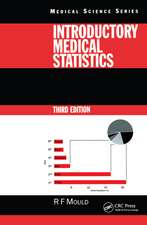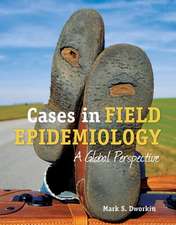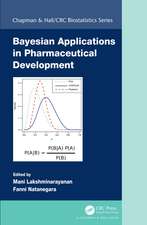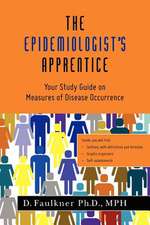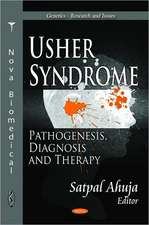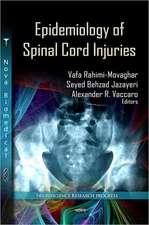Foundations of Evidence-Based Medicine: Clinical Epidemiology and Beyond, Second Edition
Autor Milos Jeniceken Limba Engleză Hardback – 11 noi 2019
Key Features:
• Considers evidence-based medicine as a universal initiative common to all health sciences and professions, and all specialties within those disciplines
• Demonstrates how effective practice is reliant on proper foundations, such as clinical and fundamental epidemiology, and biostatistics
• Introduces the reader to basic epidemiological methods, meta-analysis and decision analysis
• Shows that structured, modern, argumentative reasoning is required to build the best possible evidence and use it in practice and research
• Outlines how to make the most appropriate decisions in clinical care, disease prevention and health promotion
Presenting a range of topics seldom seen in a single resource, the innovative blend of informal logic and structured evidence-based reasoning makes this book invaluable for anyone seeking broad, in-depth and readable coverage of this complex and sometimes controversial field.
Preț: 973.79 lei
Preț vechi: 1299.84 lei
-25% Nou
Puncte Express: 1461
Preț estimativ în valută:
186.33€ • 195.07$ • 154.18£
186.33€ • 195.07$ • 154.18£
Carte tipărită la comandă
Livrare economică 07-21 aprilie
Preluare comenzi: 021 569.72.76
Specificații
ISBN-13: 9780367187637
ISBN-10: 0367187639
Pagini: 420
Ilustrații: 239
Dimensiuni: 210 x 280 x 29 mm
Greutate: 1.27 kg
Ediția:2
Editura: CRC Press
Colecția CRC Press
Locul publicării:Boca Raton, United States
ISBN-10: 0367187639
Pagini: 420
Ilustrații: 239
Dimensiuni: 210 x 280 x 29 mm
Greutate: 1.27 kg
Ediția:2
Editura: CRC Press
Colecția CRC Press
Locul publicării:Boca Raton, United States
Public țintă
Academic and Professional Practice & DevelopmentCuprins
Part 1: How do we see things in medicine: Our trains of thought. 1. How do we see medicine, health and disease? A basic set of rules and fundamental paradigms (including evidence). 2. The work of physicians with individuals and communities: Epidemiology and other partners in evidence-based medicine. 3. The logic in modern medicine: Reasoning and underlying concepts. Part 2: How do we do things in medicine: Gathering and evaluating evidence. 4. Producing evidence: Classification, objectives and worthiness of medical research. 5. Assessing the health of individuals and communities: Health indicators, indexes and scales. 6. Identifying cases of disease: Clinimetrics and diagnosis. 7. Describing what happens: Clinical case reports, case series, occurrence studies. 8. Search for causes of disease occurrence: Why does disease occur? 9. The impact of treatment and other clinical and community health interventions: A 'does it work?' evaluation. 10. Prognosis: Studies of disease course and outcomes. Part 3: Putting experiences together and making decisions in medicine: Structured uses of evidence. 11. Analyzing and integrating a body of knowledge: Systematic reviews and meta-analysis of evidence. 12. Using evidence and logic in everyday clinical reasoning, communication and legal and scientific argumentation. 13. Decision analysis and decision-making in medicine: Beyond intuition, guts and flair. Epilogue: Widening horizons, staying in touch - What next? Glossary: Preferred terms and their definitions in the context of this book.
Notă biografică
Milos Jenicek is Professor (PT), McMaster University, Professor Emeritus at the Université de Montréal and former Adjunct Professor at McGill University, Canada. He is a Fellow of the Royal College of Physicians and Surgeons of Canada. In 2009, he was elected Fellow of the Royal Society of Medicine, London, UK.
Descriere
This comprehensive text focuses on reasoning, critical thinking and pragmatic decision making in medicine. Based on the author’s extensive experience, this fully-revised second edition provides invaluable guidance to the crucial role that clinical epidemiology plays in the expanding field of evidence-based medicine.
